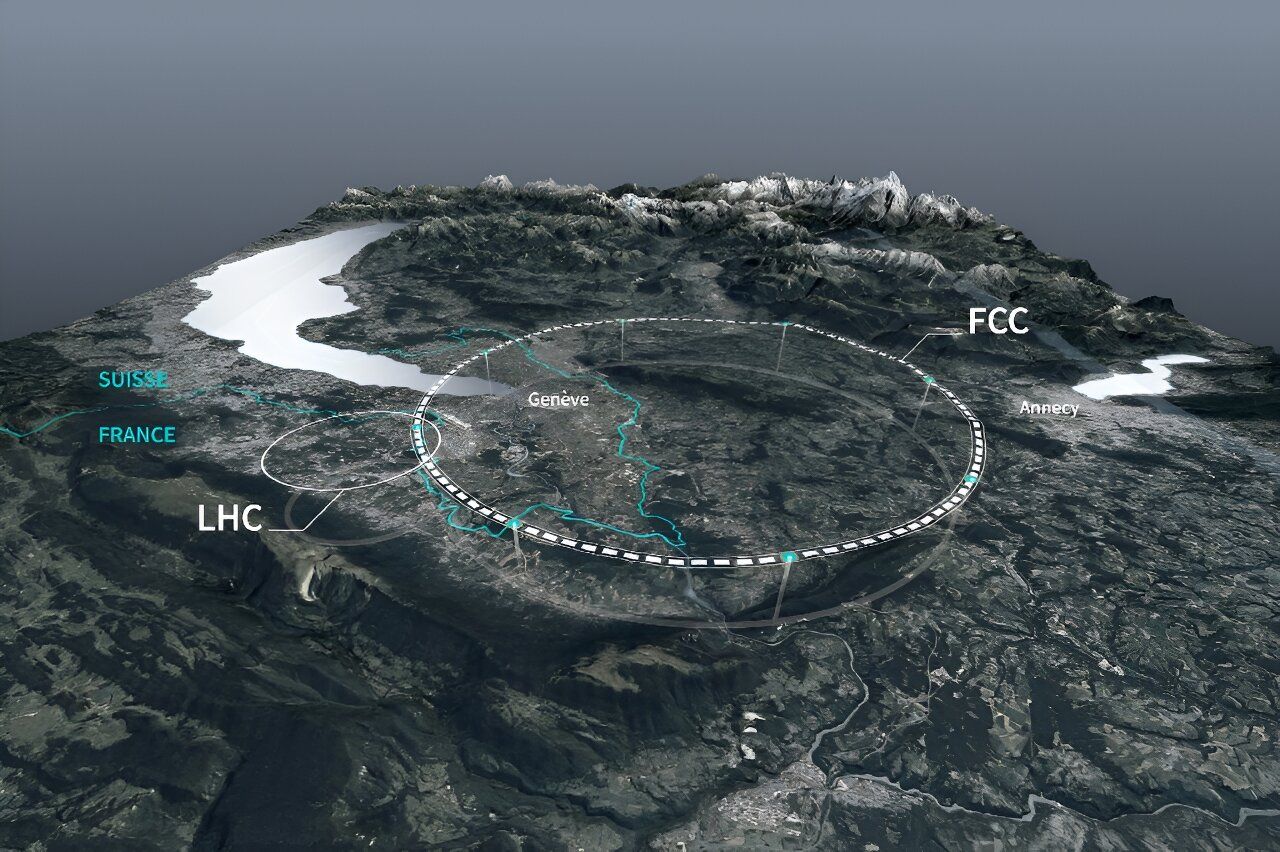Follow us on Google News (click on ☆)

Planned layout for the FCC
The FCC, an international scale project, would stretch beneath France and Switzerland with a circular tunnel of over 56 miles. This physics behemoth is not expected to emerge until the mid-century, with high-energy collisions planned for 2070. Its goal? To enable scientists to continue probing the Universe's mysteries at an unprecedented level.
The LHC, operational since 2010 with a cost of $5.6 billion, made history in 2012 by facilitating the observation of the Higgs boson. However, its potential is expected to be exhausted by 2040, paving the way for the FCC to address the unfinished challenges of science, particularly the existence of theorized particles accounting for 95% of the yet unexplored Universe, which could explain dark energy and dark matter.
The FCC aims to unravel these mysteries, as well as to understand why antimatter is so rare in the Universe compared to matter. With an estimated cost of $17 billion for its first phase, this project will require the approval of CERN's member states in 2028, before potentially commencing construction in 2033.
This future behemoth of fundamental research will consist of two phases: the first dedicated to studying the Higgs boson and the weak force via electron-positron collisions starting in 2048, followed by a hadron collider aiming for a record energy of 100 TeV (teraelectronvolts) planned for 2070. For comparison, the LHC produces "only" 14 TeV.
With eight planned technical and scientific sites on the surface, the FCC's tunnel will connect to that of the LHC, stretching beneath the Geneva region and its lake, and closing near Annecy. CERN commits to consulting the regions concerned and assessing the monumental project's environmental impact.